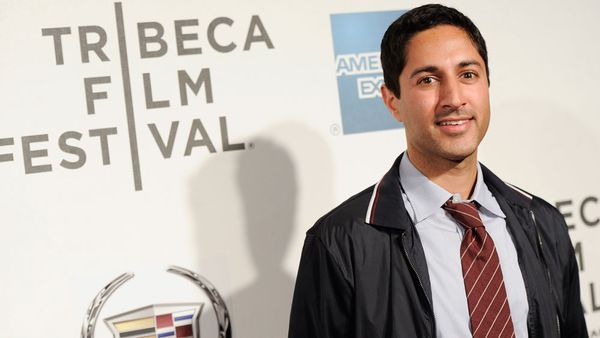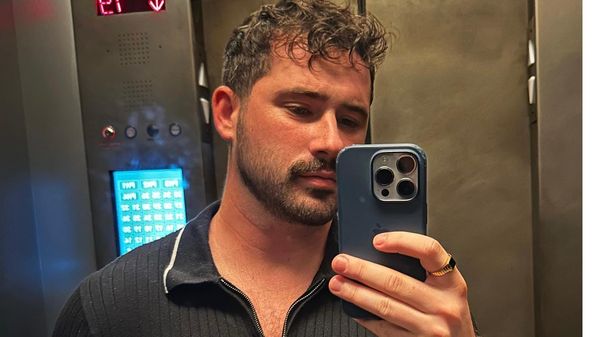Apr 25
In Boston Premiere, Director Maurice Emmanuel Parent Promises Unique Look at Award-Winning 'A Strange Loop'
Nicholas Dussault READ TIME: 8 MIN.
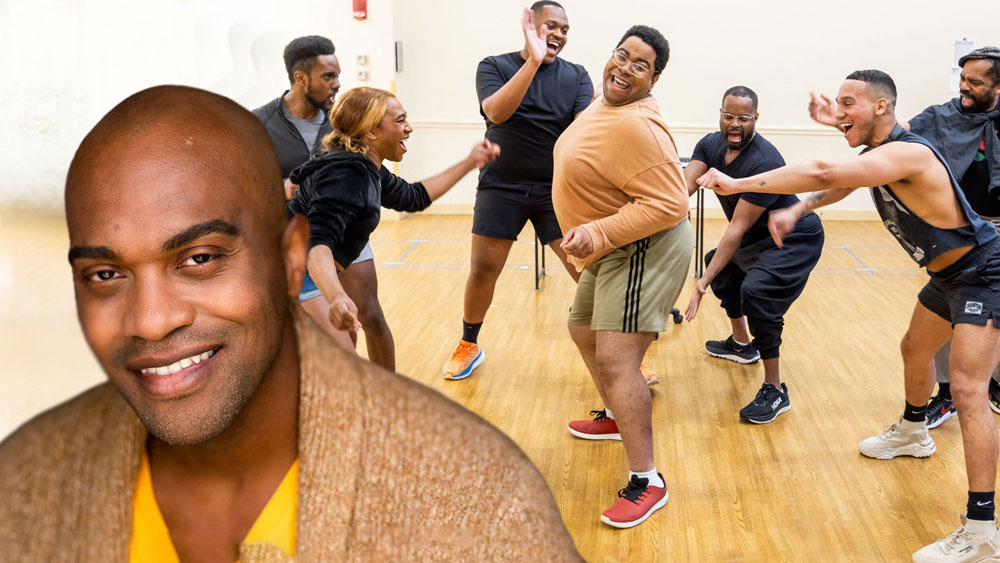
Boston's SpeakEasy Stage Company in collaboration with the Front Porch Arts Collective ("The Porch") are producing the New England premiere of the Pulitzer Prize- and Tony award-winning hit musical "A Strange Loop" from April 26 through May 25 at the Wimberly Theatre in the Stanford Calderwood Pavilion at the Boston Center for the Arts.
The show tells the story of Usher, a young man who works as an usher at Broadway's "The Lion King" while trying to realize his own creative dreams. Struggling with self-doubt, identity issues, self-loathing, and the challenges of being an aspiring artist in New York City, Usher decides to turn his inner thoughts into a musical about a Black, queer writer writing a musical about a Black queer writer. These thoughts, played by an ensemble of actors, are what Usher wrestles with as he tries to move past this "strange loop" of self talk.
The production is directed by Maurice Emmanuel Parent, an acclaimed director and long-time actor in the Boston area. Parent is also the Co-Producing Artistic Director of The Porch and a Professor of the Practice at Tufts University Department of Theatre, Dance, and Performance Studies.
Edge recently spoke with Parent about the upcoming production, its challenges, and its relevance in his own life and the lives of those in the cast of "A Strange Loop."
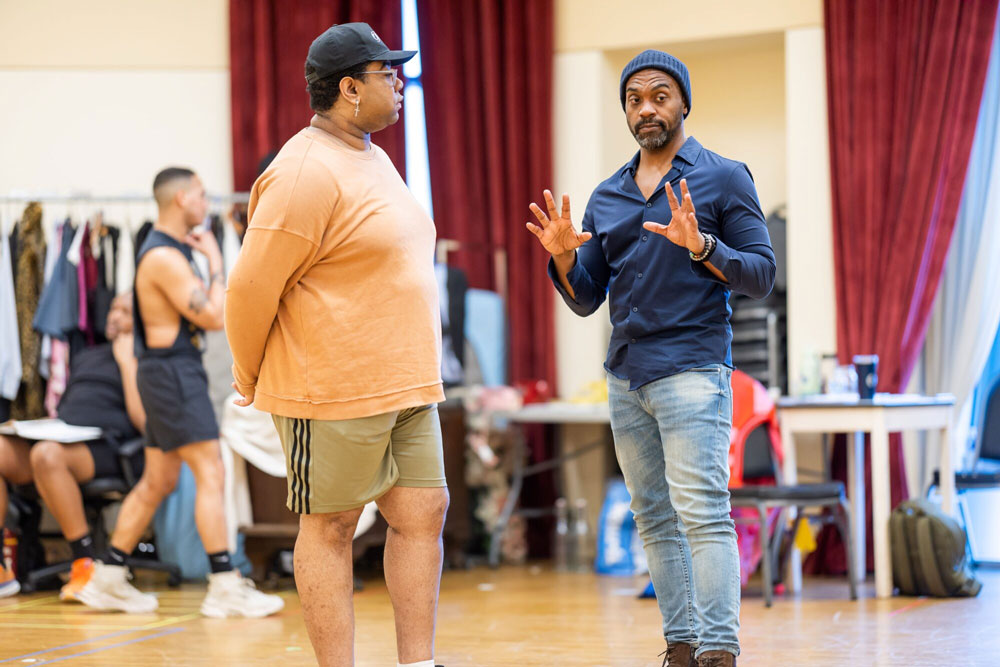
Source: NIle Scott Studios
EDGE: If you've already seen the show on Broadway, why should someone see this production?
Maurice Emmanuel Parent: It's staged different. Ours honors the truth of the play with our own personal take on many of the moments. Our spin is unique to us. Come see what we've done with the story.
EDGE: Can you explain what the show is about?
Maurice Emmanuel Parent: It's a seven-person musical that centers on the character, Usher, a Black gay man who writes a musical about a Black gay man who writes a musical. That's the loop. Though he's not an autobiographical representation of playwright Michael R. Jackson, Usher has an emotional resonance with Jackson's own development. He says he has felt the same way Usher has felt in various points in his life, but not today. He started the process of writing it in his early 20s, but he's now 43. It's very self-referential and self-aware. But on a deeper level, it's about our sense of self and what creates it. It explores our use of the narratives we've accumulated from the people in our lives and how we use them and our own thoughts to define ourselves and the people in the world around us.
EDGE: What are the challenges you've had in telling this story?
Maurice Emmanuel Parent: The challenges are that...where do I begin. What I loved about the Broadway production was how unapologetically bold, honest, queer, and Black the show was. The challenges are knowing that in our version we want to keep that spirit that Michael R. Jackson put in his work, that it's both a mirror and a window. It's a mirror for those persons who share these identities to see themselves back and it's a window into this experience for people who don't share those identities. It's something highly specific that we're trying to make universally felt. How do you make something that's super specific and so deeply personal to that specific group universally felt by everyone in the room?
The other thing is that it's rough, it's funny, it's well sung, it's irreverent and also very dark. We need bold, smart, exciting audiences, which I do find Boston audiences tend to be.
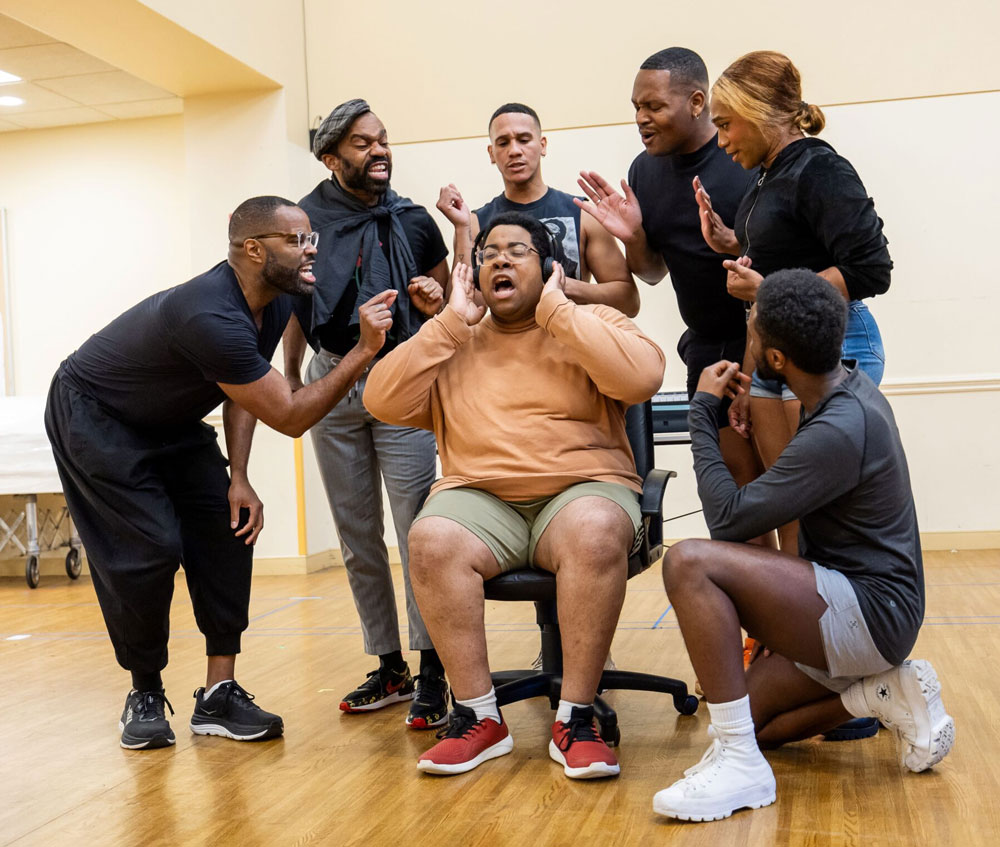
Source: NIle Scott Studios
EDGE: I saw the original Broadway production and it was loaded with sexual content, queer social networking references (dick pics and Scruff), and a few scenes that felt almost heartbreakingly specific to young, gay, Black males. Do you try to make that experience more palatable to those looking into these windows for the very first time?
Maurice Emmanuel Parent: I think we don't make them more palatable. Not at all. Theater teaches us that we are braver, more open, more curious. That's what theater is supposed to be and that's what theater does. My goal is for anyone who knows the piece to maybe walk away with new feelings about it, from seeing it again, from seeing our version. And anyone who doesn't know the piece to walk away changed in some way, that their sense of self has been expanded. The same way Usher saw himself expand, maybe other people can expand their own sense of self and grow so that the next time they see someone who looks like Usher on the street they may identify with him.
As a culture, we have been watching Shakespearean characters pillage, behead, eat people, eat eyeballs (I did that myself on the stage). We can handle gay sex. And if they can't, I would love for them to ask themselves why. Maybe that's a point to explore. Gays aren't the only ones out there having all kinds of sex.
EDGE: In the original production, "Precious Little Dream/AIDS Is God's Punishment" is a huge number. How do you approach something of that scale in the Wimberly Theatre?
Maurice Emmanuel Parent: When a show comes into the regional theater environment it has to be on a different scale. What we do is focus on the piece more. We don't have the funds or the space for those big scenic moments. But we do have a couple of surprises coming up that I don't want to give up. We focus more on the telling of the story. We have these fabulous actors and singers. There are so many of us who grew up gay in the Black church. You will burn forever. You will not have access to love. You will be punished. Some of the queens in musicals are fabulous singers because they grew up in the church singing that gospel music. That being said, they were also in places that made them feel , or were expressly told, how you were born or how you want to live and be loved you will never be accepted. You will never have love or joy. And you will be punished forever for something you had nothing to do with. Personally, I have now come to terms with my spiritual and romantic life. But that does not discount the pain of my younger self who hadn't come to that place of understanding. So I most certainly felt the duality of being in a place of love and acceptance but at the same time felt the rejection. That's the story here.
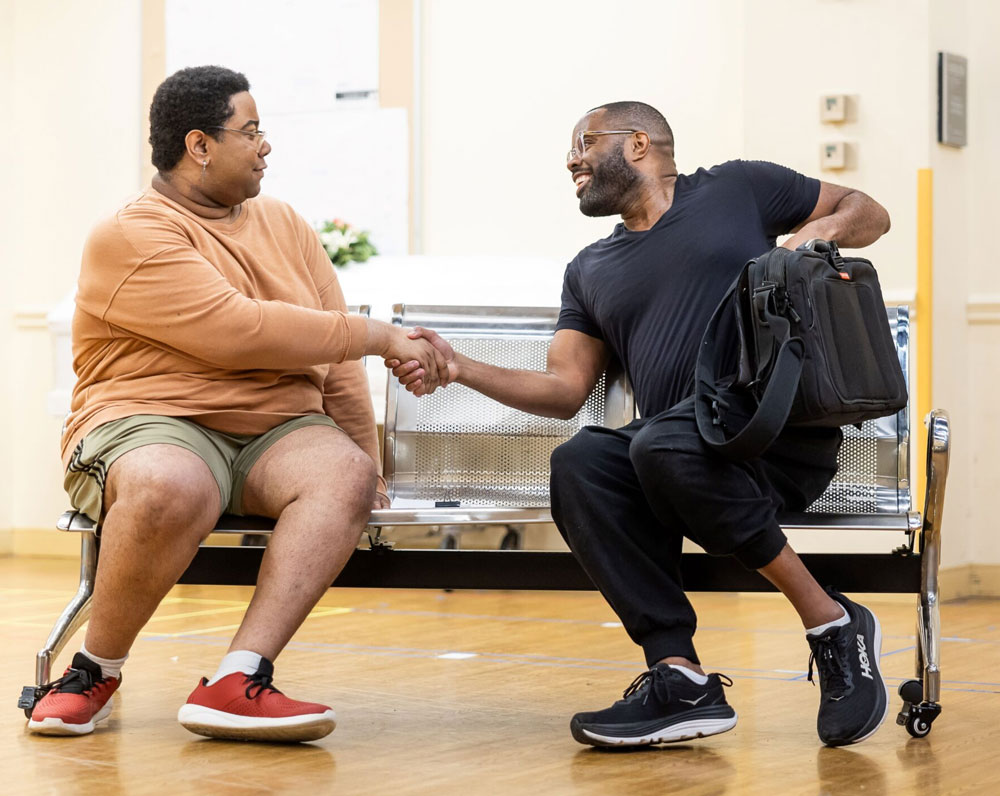
Source: NIle Scott Studios
EDGE: Is that still prevalent in the Black community?
Maurice Emmanuel Parent: I think so. It depends on your faith practice and your location. We still have faiths that say homosexuality is punishable by death, factions of Christianity still say being gay should be punished, even by death. There are also many places of faith that have the acceptance of all of me. I'm certainly more of a spiritualist these days, I have my own feeling about other religions, I definitely connect to a higher power that I know loves and accepts me just as I am. That was my journey. I think that unique experience is shared by queer people of many faiths around the world. This particular piece shares the experience of queer Black people as they wrestle with, or have wrestled with, dogmatic religious beliefs and the traumas around it.
EDGE: Usher also experienced a lot of racism in his own community.
Maurice Emmanuel Parent: The play explores the racism in the gay community and the gay culture. The playwright talks about it in terms of yet another duality. Black queers find spaces they want to be accepted, and the first thing you learn is that your queerness is secondary to your race which pervades all spaces in this country. Personally, I went away to college, decided to come out after thinking my being gay was the worst thing, knowing I was going to go to hell for it, but finally getting into a place where I was moving towards acceptance. I braved my trepidations about being in gay spaces by going to my first gay club. The first thing I heard from a guy I thought was flirting with was "sorry I don't find Black men attractive." And I think that's a hard reality that Black queers know. Before anything else, I'm a Black man in this country. Your entire existence is your're figuring out if you are being seen at all, and if so, are you being seen as an authentic full human or are you being fetishized. The racism scene is taken to a point where racism is present in some but hopefully not all interracial hookups. You have to question sometimes if people are there for you because you are who you are or because your skin is a certain color. Are they more into your skin than to you? The play also talks about people who are in the in crowd and the out crowd. If hookup culture is not willing to admit that some people are more preferred than others, we are being disingenuous.
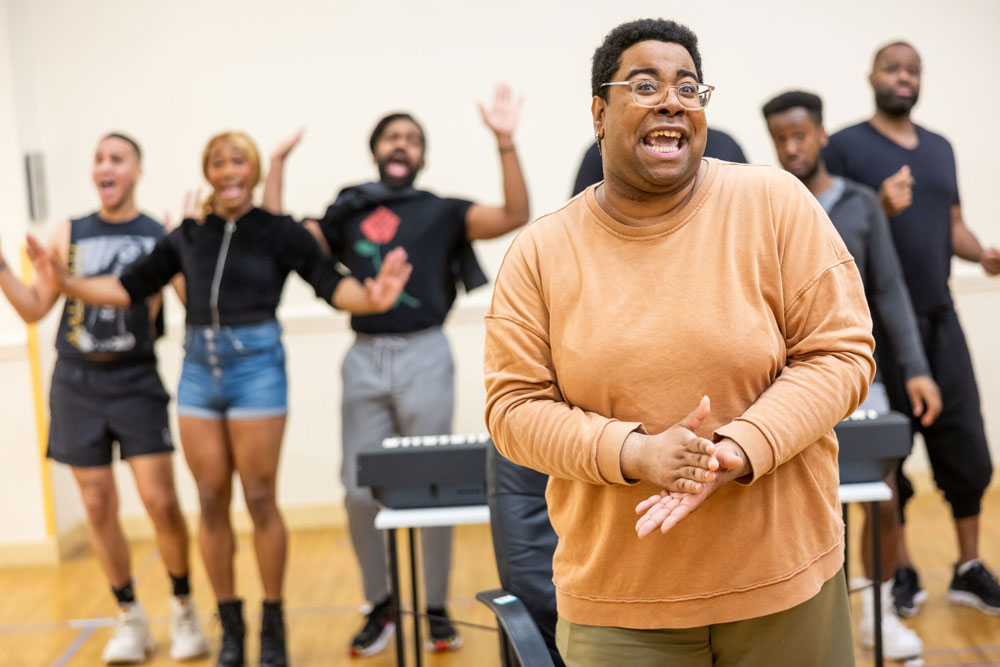
EDGE: Let's talk about your cast.
Maurice Emmanuel Parent: This cast is, I know everybody says this, but they really are my dream team. They are so talented, fabulous singers, fabulous performers, but also wonderful community members. For this show I really wanted to get seven people together who I could build a community with, for something so epic. Given the range of emotions, it was important to get together a group that could support each other, love each other, have a good time together.
EDGE: What are people going to be singing when they leave the theater?
Maurice Emmanuel Parent: Um, maybe "Intermission Song." But there are some songs that some of the lyrics might not be appropriate, so you're gonna have sing to them to yourself.
Boston's SpeakEasy Stage Company in collaboration with the Front Porch Arts Collective ("The Porch") present "A Strange Loop" from April 26 through May 25 at the Wimberly Theatre in the Stanford Calderwood Pavilion at the Boston Center for the Arts. For more information, follow this link.


